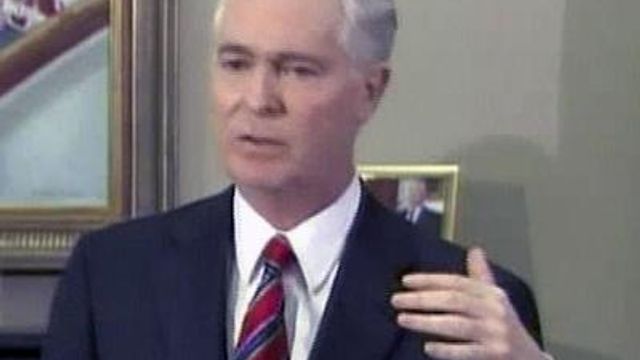Easley's Claim of Opposition to Reform Not Backed Up
Past statements by former DHHS Secretary Carmen Hooker Odom don't jibe with Gov. Mike Easley's contention that his office opposed reforming the state mental health system in 2001.
Posted — UpdatedEasley said Tuesday that he had reluctantly signed into law a 2001 bill that supporters said would decentralize the mental health system to serve more patients at a lower cost and provide more choices in services. The system has struggled with problems and claims of abuse, however, and the reforms have been slow to bring change.
In proposing legislation to give his administration more authority and control over the mental health system, Easley said his administration, including former Department of Health and Human Services Secretary Carmen Hooker Odom "vigorously opposed (the 2001 reforms) because it was too broad with not enough accountability."
Odom hasn't been available for comment, but statements she made several years ago contradict Easley's position.
"Your governor, your secretary, one of its No. 1 priorities has been this mental health reform issue," she said during a 2003 mental health conference. "I did not come into this with a great deal of knowledge, and I'm one of these crazy converts that's become more passionate about doing it the right way."
Ann Akland, a former president of the Wake County chapter of the National Alliance on Mental Illness, said she recalled Odom as being "very much fired up" about mental health reform.
"She was (at the conference) to make us all believers. I mean, it was almost like a sermon," Akland said.
Shortly after the reform bill passed, Odom wrote two letters in which she said she was involved in the process and worked in collaboration with the General Assembly. She also wrote that she presented the plan "with pride and enthusiasm."
Easley's office provided WRAL with a statement written by Odom a few weeks ago in response to recent media coverage of problems in the mental health system. She said in the statement that she consistently expressed four major areas of concern about the reform legislation.
State Rep. Verla Insko, D-Orange, who sponsored the bill, said most, if not all of Odom's concerns, were addressed before the reforms were signed into law.
John Tote, executive director of the Mental Health Association in North Carolina, a statewide advocacy group, said he believes compromises were made during the legislative process. He said he hasn't seen any proof to show Odom opposed the bill as Easley has said.
"It really is coming in the context of a vacuum. There's nothing to foundationally and fundamentally support (Easley's) statement that we've ever seen," Tote said.
Easley spokeswoman Sherri Johnson said the governor vigorously opposed the reform legislation, but once the bill passed, the administration had no choice but to commit to making the reforms work.
• Credits
Copyright 2024 by Capitol Broadcasting Company. All rights reserved. This material may not be published, broadcast, rewritten or redistributed.






